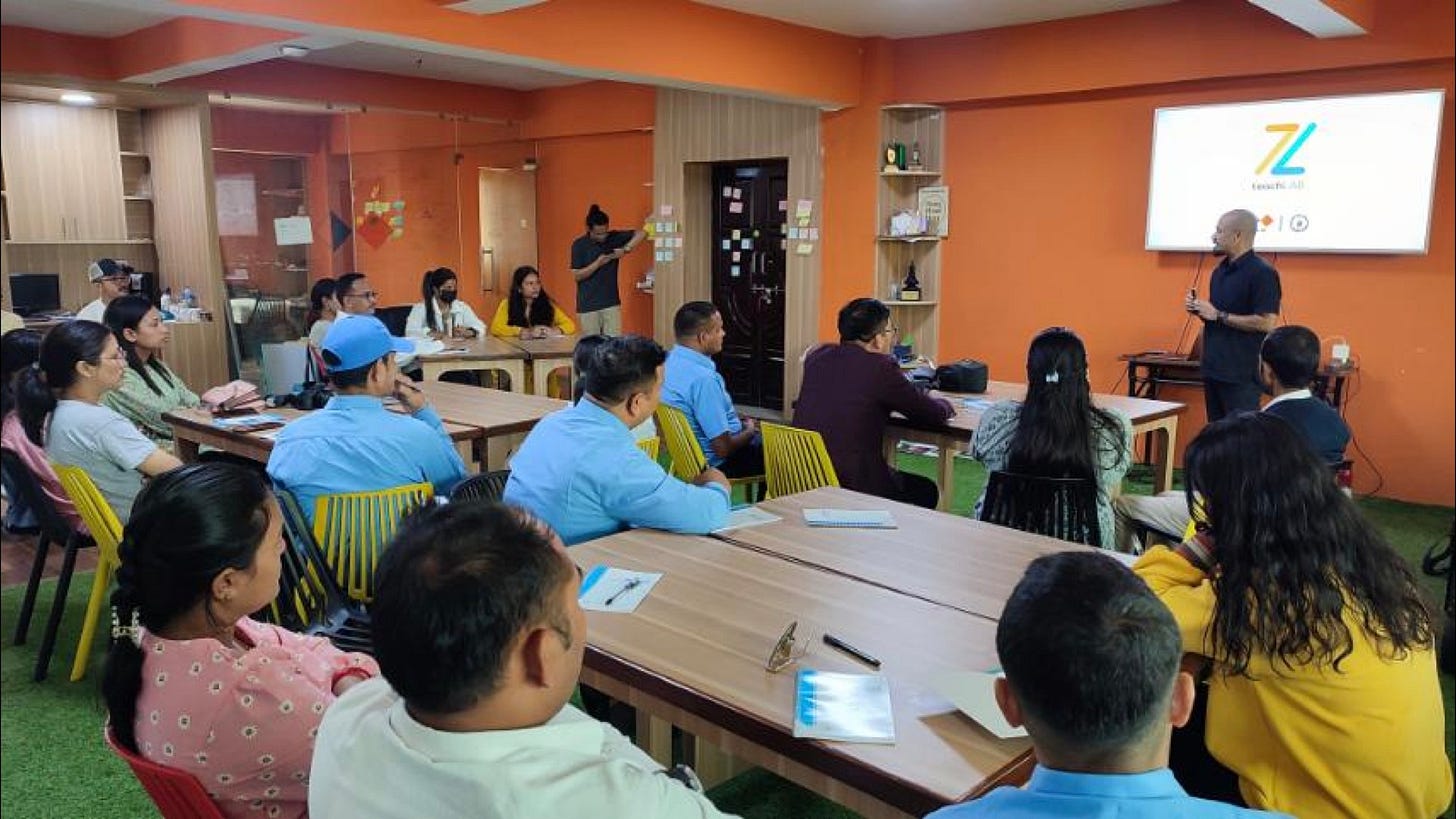Perfectly, Quickly, Consistently:
While scrolling through instagram reels, I stumbled upon this interesting video where football coach Christopher Manginis talks about how “pro” football players train passing the ball.
Here’s his explanation:
“What a lot of players don’t understand is that as you play higher and higher levels, players aren’t doing anything that different. What they are doing is the simple things, the things that we all can do. But they are doing them perfectly, quickly, and consistently.
You can take a good first touch. I know that you can. Can you take 10 out of 10 perfect first touches while under pressure? And then make a good pass quickly with your second touch? Or move into space at speed? No? Then that’s why you’re not at that level yet. Not because you can’t do some crazy skill move, it’s because you need to be better at doing the simple things perfectly, quickly, and consistently.”
This particular line struck a chord with me -
“What they are doing is the simple things, the things that we all can do. But they are doing them perfectly, quickly, and consistently.”
Now, teaching (and becoming an expert teacher) might look like a bit different than becoming a “pro” football player. However, we can draw several parallels on how expertise grows in both domains.
So the question for teachers is this:
As a teacher, are you doing the simple things perfectly, quickly, and consistently?
An Example of a Simple Thing Done Right:
Let’s take one simple thing teachers do in the classroom.
You throw a question to the students. No one really bothers to respond. And you simply proceed to give answer and explain the concept. You throw another question. Same thing happens. And, then you give the answer yourself. Eventually, you develop the habit of merely asking, “Did you all understand?” and moving on to the other point or topic.
You might think that you’ve covered the content, and even confirmed whether the students got it or not. So your job’s done.
But let’s make the “asking question to students” part a bit logical.
You preface everything like this.
“Whenever I’m asking you a question, I would want you to think for at least 10 seconds first. Then I’m going to call on one of you students. You can not shrug off and say you don’t know the answer. If you genuinely don’t know the answer, I will ask another student and then come back to you. Then you will have to show me that you are putting on the effort. I won’t let you off.”
Now you ask the question. Pause for 10 seconds. Call on one of the students. And, then on another.
You do this every single time, consistently, until this becomes one of the classroom rituals, until you and your students become more efficient and perfect at it.
The Mindset of a Pro:
“Most people train until they can get it right ..the pros train until they can't get it wrong.”
The concept is about progressively over-training, getting to the point of unconscious , automaticity, complexity, and internalization.
So, here’s another question:
Do you, as a teacher, think you are doing just enough and feel satisfied with the way things are in your teaching OR do you want to improve till you “can’t get it wrong”?
You might say, “Even the greatest ones like Messi and Ronaldo have missed penalty kicks in crucial matches? No one can be perfect all the time, can they?”
You are right.
However, the big difference is in the intention. Are you giving your 100% before making excuses about things you could have practiced and done.
Cool. Hope you keep growing and improving everyday.
Disclaimer 1:
Of course, there are many variables. Visible and invisible. Additionally, football is less chaotic compared to teaching, especially where there are 30 students with differing prior knowledge, skills, and motivation.
Disclaimer 2:
Please don’t throw this quote at me right now. “Teachers don’t need to be perfect, they just need to be human.” Yeah let me twist the quote around. “Perfect teachers don’t need to be perfect all the time.” Or, you can choose to remain an NPC.



